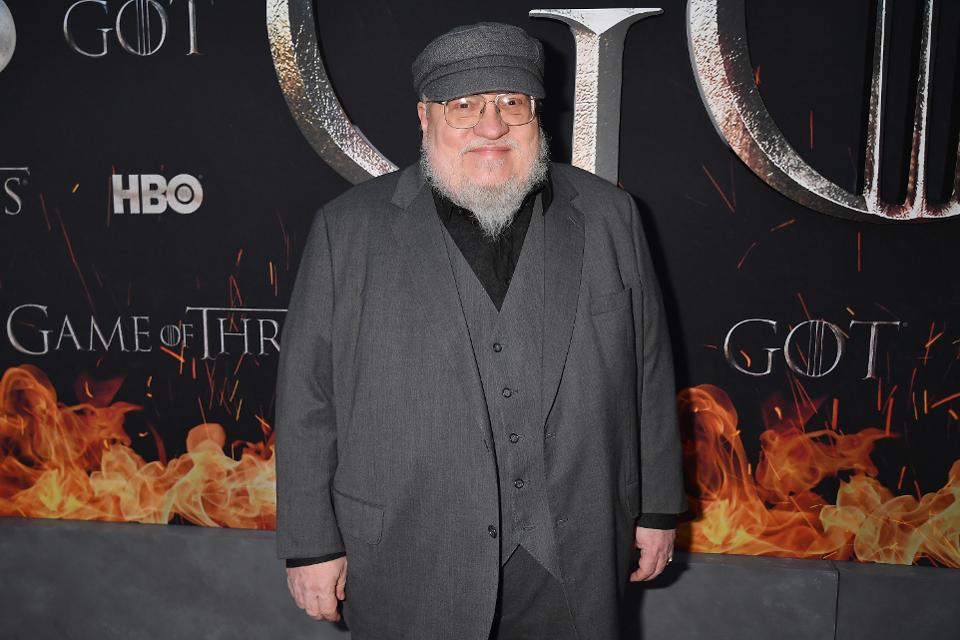
George R. R. Martin attends the “Game Of Thrones” Season 8 Premiere. (Photo by Jeff Kravitz/FilmMagic for HBO)
FilmMagic for HBO
In an interview with The Observer, A Song of Ice and Fire author George R.R. Martin reflects on the cost of fame, as well as the detrimental effect the TV adaption of his novels had on his writing.
“I don’t think [the TV series] was very good for me. The very thing that should have speeded me up actually slowed me down. Every day I sat down to write and even if I had a good day … I’d feel terrible because I’d be thinking: ‘My God, I have to finish the book. I’ve only written four pages when I should have written 40’.”
Martin goes on to assure readers that his future novels shall not be influenced by the ending of the TV series:
“It doesn’t change anything at all … You can’t please everybody, so you’ve got to please yourself.”
It will be interesting to see how Martin’s novels differ from the divisive final season of the HBO series (or if they even make it to the end in the first place). Watching an adaption of his own work, however, surely influenced Martin’s ideas on some level, subconsciously or otherwise. Like the “observer effect” in physics, the mere act of observation is bound to change the outcome.
Despite (wisely) staying clear of the intense backlash against season 8 of Thrones, Martin would have to be unplugged from the internet entirely to ignore the animosity against major plot points, some of which, like “King Bran the Broken,” are reportedly planned for his future novel.
The weight of the ever-expanding narrative was already dragging the pacing of the novels, and the airing of the television show, rushing through plot points faster than Martin was able to conceive them, contributed to an already formidable case of writer’s block.
Now that the show’s legacy has been irreparably damaged by the magnificently underwhelming ending, the pressure on George R.R. Martin likely remains as heavy as ever. Will he be tempted, as fans suspect of D.B. Weiss and David Benioff, to rush to the finish line, to skip through the character development and deliver an ending?
It doesn’t seem likely; Martin is a writer whose tales grow in the telling, the author having compared himself to a gardener, watching his story expand in unexpected directions.
Martin’s novels are immensely complex, and take several years to write. If the final installment of A Song of Ice and Fire ever arrives, then Game of Thrones will, by that time, be a distant memory. Spin-offs are already in the works at HBO, and Amazon is keen to jump on the renewed popularity of fantasy television by filling in the blanks left behind by J.R.R. Tolkien.
In a year or two, the conversation around Thrones will surely have died down, and the reduced noise and attention might just allow Martin to rekindle his passion for a project that seems to have become a burden.
Personally, I’ve decided that the best way to experience the end of Game of Thrones is to switch off the television halfway through the episode “The Long Night,” just as the army of wights invade Winterfell. This leads to the assumption that everybody perishes, allowing the characters to die with dignity, rather than being poisoned by poor writing.
In a decade or two, we might finally get a real ending to Martin’s story.




















![[Book Review] The Blade Itself (The First Law Trilogy) by Joe Abercrombie](https://bendthekneegot.com/wp-content/uploads/2018/01/1516047103_maxresdefault-218x150.jpg)

















